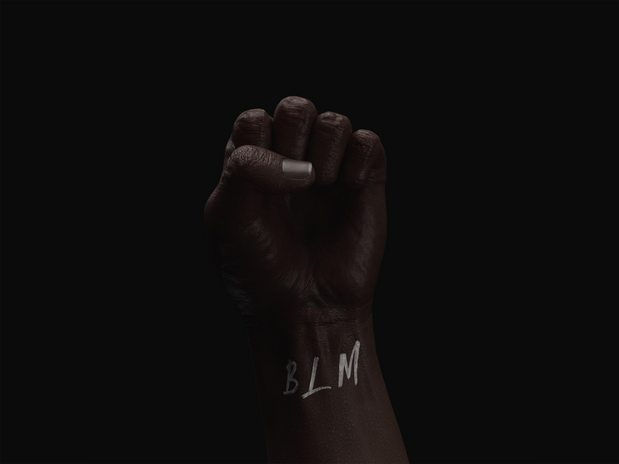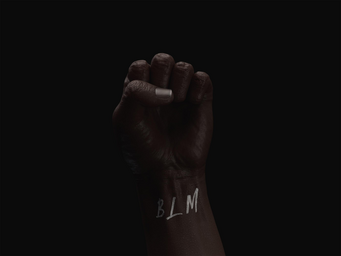The first time I stumbled upon a social media post that said “we are not our ancestors,” was during the summer of 2016. That summer, the killings of Alton Sterling, Philando Castile and Charles Kinsey had gained national attention about the issue of police brutality that Black people in America face. To top it all off, that summer Colin Kaepernick who at the time was the quarterback for the San Fransico 49ners kneeled during the national anthem, causing an uproar in the media. Since then, the phrase has continued to circulate the internet making its most recent appearance in the summer of 2020 during yet another national outcry from Black America against racial injustice.
While the commonalities of these two events are the instances of racial injustice and a cry for social reckoning, this is the only time in which that disgraceful phrase makes its re-emergence from tweets to t-shirts. Every time this current generation of Black people break into a series of protests or engages in social unrest there is always this superiority complex that I see amongst people. The phrase “we are not our ancestors” is to imply that our ancestors were weak. It makes the wild assumption that as descendants of slaves, they were cowards as if slavery was a choice or a struggle to “overcome.” It implies that if this current generation of Black people were enslaved, we wouldn’t have been “submissive” like our ancestors that we magically would’ve done things differently.
As a child, I quite literally grew up surrounded by Black history. My father worked at our local African American museum and there were many days that I spent at the museum walking through the exhibits. I have vivid memories of walking through the recreated ships from slavery, seeing Black bodies chained and hearing the audio of distressed moans. I remember seeing the images of Black bodies being sprayed by water hoses and attacked by dogs. And in processing all of those images, my parents unconsciously taught me what a privilege it was to be learning about slavery and Jim Crow from a second-hand account and not having to have experienced it myself.
In elementary school, most of my teachers were Black women, and when it came to Black History Month all assignments were dedicated to the learning of its origin and teaching us the Black trailblazers that came before us. I remember giving presentations on Mae Jemison, the first Black woman to travel into space, or Marie Van Brittan Brown the inventor of the first home security system. With their guidance, they taught us to honor their legacies with presentations, and some days we even had to dress up as Black figures in history to recite papers we had written. We memorized the poems of Langston Hughes, and “Lift Every Voice and Sing” by James Weldon Johnson was the only national anthem that mattered to us. Because of them, it has been ingrained that my history is something to be respected and honored.
The truth is, I agree. This generation of Black people aren’t our ancestors, and that is something we should be thankful for and yet simultaneously disappoint by. In fact, we are unworthy of drawing such parallels between us and them. We aren’t Nat Turner, leading slave rebellions. We aren’t Harriet Tubman making 19 missions to free over 300 enslaved people.
I recognize that this current generation of Black people has made accomplishments and we continue to make attempts to shatter the glass ceilings designed to hold us back. We deserve to be proud of our accomplishments, but our pride should never be at the expense of those who chipped at that same ceiling long before us. When Carter G. Woodson pushed for Black history week, at the time he said, “Those who have no record of what their forebears have accomplished lose the inspiration which comes from the teaching of biography and history.” His message to Black people was to recognize the contributions Black people have made to the fabric of America, and that non-black people needed to start recognizing it. But Woodson also hoped for a time where such an event was not necessary. Black History week was passed in 1926. In 1986, 60 years later, Congress passed Public Law 99-244 observing Black History Month. Now, 35 years later we are still grappling with the same issues of the past. We aren’t our ancestors, but we should dare to be them.
So I dare to be maladjusted like Martin Luther King Jr. Dare to be Bayard Rustin who organized the March on Washington in 1963 and spoke on the intersections of being Black and LGBT. Dare to be Claudette Colvin, who at 15 was the first person to not give up their seat and go to the back of the bus. Dare to be Marsha P. Johnson, a crucial figure in the Stonewall Riots. Dare to be Maria P. Williams, the first Black woman to produce, write and act in her own films. Dare to Alvin Ailey, who opened his own dance theatre to create a safe haven for Black performers. I dare to write like Toni Morrison, unapologetic, not made to be digestible to others and authentically herself.
The fact that I hold the ability to speak my mind in such a manner is a result of the specific hardships I did not have to face. This is not to imply that our lives as Black youth are easy, nor to say our lives are free from experiencing racism on all fronts. However, two things can be true at once. James Baldwin tells us, we do not have time to reconcile ourselves for the sake of perceived progress that we have yet to obtain. This current generation has the ability to move mountains, but maybe if we all considered being even a fraction of what our ancestors were, we would start seeing that momentum.



